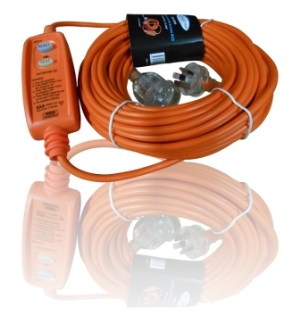
As covered in February’s Hot Product, RCDs are becoming legal requirements across Australia, with many Australian States and Territories already on board.
To refresh, the law states that RCDs are legally required* in workplaces where “plug in” electrical equipment is used (ie: Vacuum Cleaners, Polishers, Steam Cleaners, etc).
For the facts and figures, see the link provided above. You can also go here to find out more about the legal requirements.
This is a WORKCOVER initiative. It isn’t a money-making scheme, or a nuisance, it is in place to protect yourself, your workers and your workplace from harm. The solution is simple. If harmful levels of electrical leakage are detected, the RCD will cut the power off which prevents electrical fires and hazards.
Don’t think of it as law, think of it as common sense.
Just for a general overview, the NCIS’s (National Coroners Information System) Feb 2012 Fact Sheet stated that there were 56 unintentional electrocution deaths relating to Appliances/Machines/Tools between July 2000 and October 2011. These figures are just deaths and do not include injuries and damage to property. The stats are damning and something needed to happen.
The only question left to ask is…
Where can I get an RCD and what is right for me?
There are several types of RCD but the most popular, for several reasons, is the Extension Lead with the Built-in RCD. Using these offers the benefits of a built-in RCD, so there is no need to remember to use one, as it is always attached to the lead you are using.
The image below is Cleanstar’s RCD-CE2010. The 20 Metre, 10 Amp Extension Lead with Built in RCD. A quality product with far-reaching benefits. You will also see below an image of the Range of RCDs cleanstar offers.
Cleanstar offer a full range of RCDs (see above picture) please contact our office for more information.
Click here to find out more.
Cleanstar Pty Ltd
59 Radford Road, RESERVOIR VIC 3073
p. (03) 9460 5655
e. sales@cleanstar.com.au
web. Cleanstar.com.au
Click here to find out more about the legal requirements.
*Currently legal requirements are in NSW, but it is anticipated other States will soon follow.
Disclaimer: Please note these facts are for general information only. Please contact your local government regulator for current legislation to see if they apply to you.

